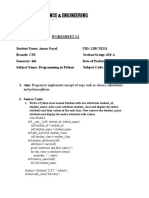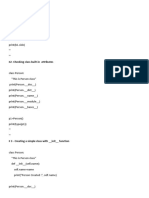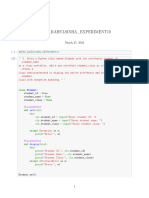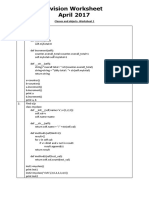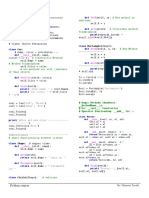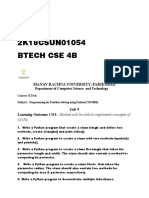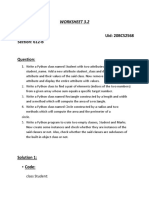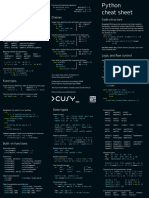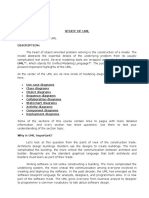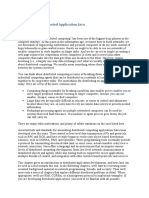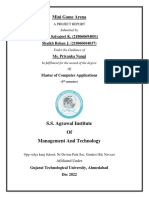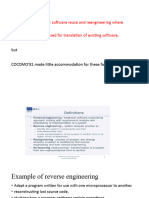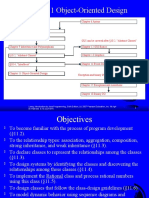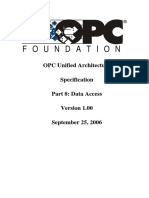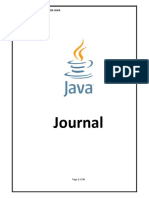0% found this document useful (0 votes)
34 views11 pagesAssignment6 Python S12 27
The document discusses polymorphism in Python, focusing on operator overloading, method overloading, and method overriding. It includes examples of classes demonstrating these concepts, such as Student, Pointer, Shape, and Employee classes. The conclusion emphasizes the successful implementation of polymorphism through these techniques.
Uploaded by
hyperlink215Copyright
© © All Rights Reserved
We take content rights seriously. If you suspect this is your content, claim it here.
Available Formats
Download as PDF, TXT or read online on Scribd
0% found this document useful (0 votes)
34 views11 pagesAssignment6 Python S12 27
The document discusses polymorphism in Python, focusing on operator overloading, method overloading, and method overriding. It includes examples of classes demonstrating these concepts, such as Student, Pointer, Shape, and Employee classes. The conclusion emphasizes the successful implementation of polymorphism through these techniques.
Uploaded by
hyperlink215Copyright
© © All Rights Reserved
We take content rights seriously. If you suspect this is your content, claim it here.
Available Formats
Download as PDF, TXT or read online on Scribd
/ 11

